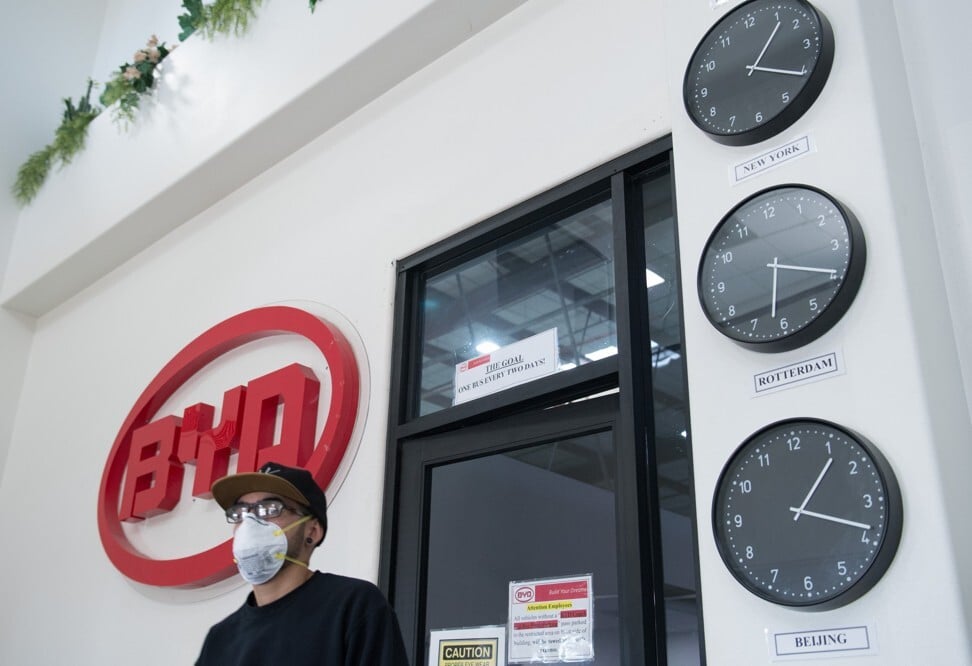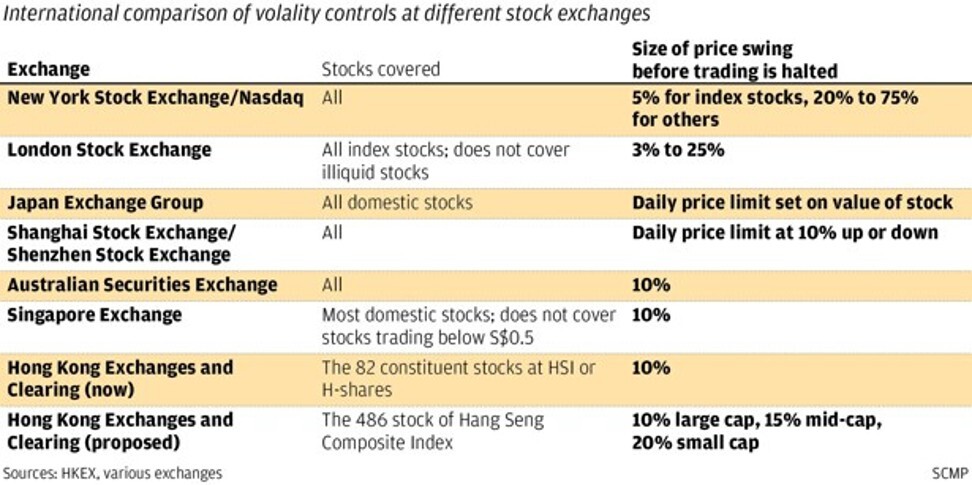
Hang Seng adds Country Garden unit, Xinyi Solar and Buffett-backed BYD to kick off its biggest index overhaul in half a century
- The move will raise the constituent stocks to 58 on June 7 as part of the compiler’s plan to widen the membership to 80 by mid-2022
- The rebalancing will reduce the weighting of AIA, Tencent and HSBC, raise Alibaba’s portion as a result of a new cap on each stock
The three new members will raise the number of constituents on Hong Kong’s benchmark index to 58 with effect from June 7, according to a statement by Hang Seng Indexes.
The addition, first foreshadowed in March, is part of a plan to broaden the key gauge of Asia’s second-largest capital market from 55 to 80 by mid-2022, as the index compiler overhauls its flagship index to better reflect how Hong Kong’s financial market has evolved since 1969. The plan would add about five stocks to the index every three months for five successive quarters in the first phase, eventually reaching 100 stocks in the longer term.
“The new enhancements to the HSI will further increase its representation and make the index more balanced and diversified,” Anita Mo, chief executive of Hang Seng Indexes Company, said when the overhaul was first announced in March.
The three stocks will carry a combined weighting of 2.41 per cent on the Hang Seng Index, with BYD the biggest at 0.98 per cent, Country Garden Services at 0.97 per cent, and Xinyi solar at 0.46 per cent.
In one year term, however, all three appreciated substantially with BYD advancing 282 per cent, Xinyi Solar 126 per cent and Country Garden Services 113 per cent. They outpaced the index which gained 24 per cent.
“We think coverage of the consumer, healthcare, and technology sectors will significantly increase, and they will become the biggest winners” of the overhaul of the Hang Seng Index, said CICC’s chief strategist Wang Hanfeng, in a research report. “Constituents will be selected from seven industry groups to achieve a more balanced industry distribution.”
BYD, Xinyi and Country Garden Services will add a combined market capitalisation of HK$523.47 billion (US$67.46 billion) to the HSI family.
The rebalancing will have implications to other existing members. Chinese social media and online games giant Tencent Holdings, insurance juggernaut AIA Group and HSBC will remain the most-heavily weighted stocks but their weighting will cut down to 8 per cent from 10 per cent as a result of the new cap set by the complier in March.

Alibaba Group Holding, which owns this newspaper, will see its weighting increase from 5 per cent to 7.3 per cent while food delivery firm Meituan will account for 7.7 per cent weight, under the 8 per cent-limit for the weighted voting right companies.
The overhaul, the biggest in the index’s 52-year history, reflects the changes in Hong Kong’s role as a financial centre. The enlargement is seen as a result of the local markets growing much bigger, particularly after listing reforms in 2018 that allowed companies with weighted voting rights and biotech firms yet to turn a profit to list. These moves brought a wave of initial public offerings (IPOs) to the city.
The Hang Seng Index was introduced in 1969 as a public service, initially named after the HSBC subsidiary that conducted the calculation and compilation. The index compiler was established in 1984.
For more than three decades from Hong Kong’s days as a British colony to almost a decade after the return of the city to Chinese sovereignty, the Hang Seng was made up of merely 33 stocks, comprising mostly property developers, conglomerates and the large banks that dominated the city’s economy out of more than 1,000 publicly traded companies. The mnemonic of the largest companies that made up the index reflected their influence: 1 for CK Hutchison, 2 for CLP Holdings, 3 for Hong Kong & China Gas and 5 for HSBC.

The index made its first change in 2006, adding five so-called H shares – China-domiciled companies listed in Hong Kong – to expand the constituents to 38 stocks, before reaching 50 in December 2012.
With 80 stocks, the Hang Seng Index would cover 71 per cent of Hong Kong’s total market capitalisation, up from 56.6 per cent as of the end of January. It will also cover 66 per cent of market turnover, up from 50 per cent now, Hang Seng Indexes said in March.
As part of the revamp, Hang Seng Indexes will also ensure that between 20 and 25 Hong Kong companies are among the constituent stocks, so as to prevent their representation from falling as more Chinese companies are added to the benchmark. The index currently has 24 Hong Kong firms and 31 Chinese companies.
The latest reforms also shorten the time required for companies to become a constituent stock. According to the overhauled rules, they will only be required to have been listed for three months – down from the current requirement of two years – before they can be added to the index.


